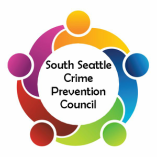Lottery Ticket Scams
Legitimate lotteries are either run by a government (for example, the Washington State Lottery) or a government-approved charitable organization. A legitimate lottery contest will not require a prize winner to do any of the following to receive winnings: provide bank or credit card information, pay a transfer fee to collect winnings, or pay taxes before collecting winnings. Legitimate lotteries will require that a winner provide the winning ticket to claim a prize.
Fraudsters/scams usually e-mail or approach you, in person or via a telephone call, and say you have a winning ticket and, in order for you to receive your prize, you must provide proof of your identity with your Social Security number, your bank and credit information, and you'll have to pay a small sum in transfer fees or taxes to collect your prize--this is patently false.
No matter how convincing an e-mail or contact appears, trust your instincts and remember that:
Fraudsters/scams usually e-mail or approach you, in person or via a telephone call, and say you have a winning ticket and, in order for you to receive your prize, you must provide proof of your identity with your Social Security number, your bank and credit information, and you'll have to pay a small sum in transfer fees or taxes to collect your prize--this is patently false.
No matter how convincing an e-mail or contact appears, trust your instincts and remember that:
- You never have to pay to collect winnings from a legitimate lottery
- You only pay taxes after you receive your prize
- Lottery scams may use legitimate lottery names to defraud/trick people
- You should never provide your birthdate, Social Security number, bank account information, etc. to redeem a prize
- You should never respond to a letter or telephone call that claims you have won a prize by providing personal data
- You should never buy a lottery ticket from a stranger
- You do not to be a U.S citizen to redeem a lottery ticket
- Never redeem a lottery ticket for a stranger
